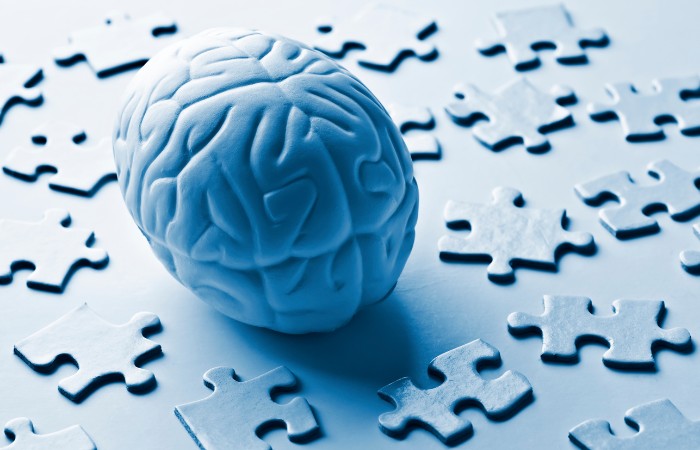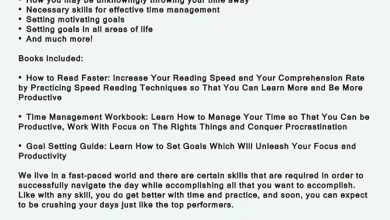How Does Perception Affect Critical Thinking?

Perception is the process by which we interpret and make sense of the world around us. It plays a vital role in our daily lives, affecting our thoughts, feelings, and actions.
However, perception can also impact our critical thinking abilities in significant ways. But how does perception affect critical thinking?
Perception can affect critical thinking by influencing how we interpret events or information. This can lead to biased or distorted thinking if we don’t take the time to consider all perspectives and objectively evaluate the evidence.
In this blog, we will explore the ways in which perception can influence critical thinking and offer strategies for improving our critical thinking skills.
Relationship Between Perception And Critical Thinking
Perception and critical thinking are closely related. Perception refers to the way we interpret sensory information and make sense of the world around us, while critical thinking is an active and complex cognitive process that involves analyzing, evaluating, and synthesizing information to make informed decisions or judgments.
Read Also: How Are Symbols Related To Critical Thinking?
How Does Perception Affect Critical Thinking?
Perception can greatly affect critical thinking skills as it involves the interpretation of information and experiences. Critical thinking is an active and complex process that requires cognitive skills to analyze, evaluate, and make judgments based on accurate perception.
In education, both student and teacher perceptions play a significant role in the development of critical thinking abilities. Teachers can provide critical thinking opportunities through various methods of teaching, and students can develop critical thinking skills through practice and experiences with diverse content.
Studies have shown that a student’s perception of their ability to think critically can impact their critical thinking score. Teachers’ perceptions of their students’ critical thinking abilities can also affect their approach to teaching and their students’ learning outcomes.
Factors That Influence Perception Over Critical Thinking
Various factors can influence how an individual perceives and processes information, which can affect their critical thinking abilities. Here we’ve presented some of them:
Cognitive Biases
Cognitive biases are systematic errors in thinking that can influence an individual’s perception and judgment. These biases can include confirmation bias, where individuals seek out information that confirms their pre-existing beliefs, and the availability heuristic, where individuals make judgments based on readily available information, rather than seeking out all relevant information. Such cognitive biases can lead to narrow thinking and hinder critical thinking.
Emotions
Emotions can significantly impact how an individual perceives and processes information. For example, fear can lead to a focus on potential negative outcomes, while anger can lead to a focus on finding a scapegoat. Such emotional states can hinder the ability to think critically and make reasoned judgments.
Culture and Social Conditioning
Culture and social conditioning can influence how individuals perceive and process information. For example, individuals from cultures that value collectivism may prioritize group harmony over individual needs, while those from individualistic cultures may prioritize individual needs over the group. Such cultural differences can impact critical thinking abilities and lead to biased judgments.
Education and Experience
Education and experience can impact how an individual perceives and processes information. Individuals with formal education in a particular field may have a more in-depth understanding of the subject matter, which can aid in critical thinking. Additionally, individuals with diverse life experiences may be more open-minded and able to see multiple perspectives, which can also aid in critical thinking.
Common Biases That Affect Perception and Critical Thinking
Several biases can affect the accuracy and validity of perception and critical thinking, leading to flawed judgments and decisions. Here, we will discuss some of the common biases that affect perception and critical thinking.
Confirmation Bias
Confirmation bias is a common bias that affects perception and critical thinking. It refers to the tendency of people to seek out information that confirms their existing beliefs, while ignoring or dismissing information that contradicts those beliefs. This bias can lead to the reinforcement of false beliefs, which can be difficult to change even in the face of overwhelming evidence to the contrary.
Hindsight Bias
Hindsight bias is another common bias that affects perception and critical thinking. It refers to the tendency of people to believe that they would have predicted an event or outcome after it has already occurred, even if they had no reason to believe it beforehand. This bias can lead to overconfidence in one’s ability to predict future events and can also lead to a lack of accountability for past mistakes.
Availability Heuristic
The availability heuristic is a cognitive bias that affects perception and critical thinking. It refers to the tendency of people to rely on information that is easily available to them, rather than seeking out more accurate or complete information. This bias can lead to incorrect conclusions or decisions based on incomplete or biased information.
Anchoring Bias
Anchoring bias is a cognitive bias that affects perception and critical thinking. It refers to the tendency of people to rely too heavily on the first piece of information they receive when making decisions, even if that information is irrelevant or incorrect. This bias can lead to poor decision-making and can be particularly dangerous in situations where accurate information is crucial.
Read More: What Is Argument In Critical Thinking?
Strategies for Overcoming Biases and Improving Critical Thinking
Humans are prone to cognitive biases that can impede our ability to think critically and make rational decisions. Here, we will discuss some strategies for overcoming biases and improving critical thinking.
Recognize Your Biases
The first step in overcoming biases is to recognize that we all have them. We need to be aware of our biases and acknowledge that they may be affecting our judgment. We should question our assumptions and beliefs and consider other perspectives. This can help us to avoid making hasty and inaccurate conclusions.
Gather Information
To make informed decisions, we need to gather all relevant information. This means seeking out diverse perspectives and sources of information, including those that challenge our own views. We should evaluate the credibility and reliability of the information we gather and be willing to revise our beliefs based on new evidence.
Evaluate Your Thinking
We should regularly evaluate our own thinking and decision-making processes. This involves reflecting on our assumptions, biases, and the evidence we used to reach our conclusions. Consider alternative explanations and perspectives.
Seek Feedback
It can be helpful to seek feedback from others to identify any biases we may have missed. This can include seeking feedback from people with different perspectives or backgrounds. Open to constructive criticism and use it to improve our critical thinking skills.
Practice Mindfulness
Practicing mindfulness can help us to become more aware of our thoughts, emotions, and biases. This involves paying attention to our thoughts and feelings without judgment. By practicing mindfulness, we can develop greater self-awareness and become better equipped to recognize and overcome our biases.
Final Words
So, you have enough idea on how does perception affect critical thinking. In general, perception is the key factor in how individuals process and interpret information, which in turn affects their judgment and decision-making.
People tend to draw on their experiences and biases when making decisions, which can lead to inaccurate assessments or conclusions. So, be aware of how perception can influence critical thinking in order to make sound decisions and judgments.



